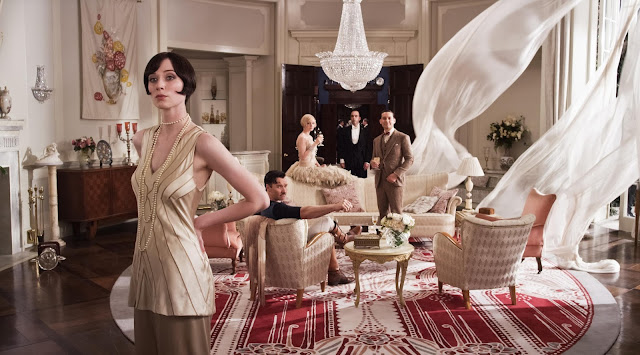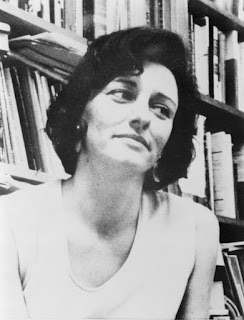The Great Gatsby ~ Chapter 1
Summary
Chapter One begins with Narrator Nick establishing his views on society and the eway he views hismelf. This is followed by Nick attending his 'old friends' grand and impressive mansion where he learns of the underlying tensions beneath the seemingly secure fascade, repsrenting the ultimate American Dream.Characater Ananlysis
Nick ~
Nick is the omniscient narrator throughout this novel and he makes his apparent opinions and views clear in this first chapter. He makes the statement:"I'm inclined to reserve all judgements"From the beginning we see a clear indication that tries to present his character in a 'good' light and attempts not to hold personal opinions on people. However he continues to contradicts himself as he passes many judgment of people throughout the book and even in this first chapter, making the characters appear a certain way. He makes many side comments about situations which suggest that he is going to present himself a certain way throughout, possibly to make himself seem like a better person and come off better than the other corrupt characters. Due to this, the reader one the on hand can view Nick as fairly deceptive and possibly corrupt narrator. Additionally, we know that he is writing this after the events have taken place which highlights the control that he has about what he chooses to reveal to the reader and when to reveal it.
"Yale News" and "New Haven"Are both statements that highlights the way in which Nick proceeds to boast about his achievements and are himself appear accomplished and educated. 'New Haven' is an abbreviation for Yale University and Nick atomically assumes that his readers will know what he is referring to. However it could interpretted that he is aware people won't understand and therefore he groups himself into an exclusive group, attempting to make himself appear scholarly. Linking got this, Fitzgerald himself presents similar characteristic of himself and it was broadly known that he was angered throughout his life that his career was not recognised; and although he did not received a degree he did attend the prestigious university of Princeton.
"...was exempt from my reaction - Gatsby"Here we begin to see Nick's admiration for Gatsby as he first introduces him. The isolation of his name makes it seem wistful and important - which is how he views his character. Nick uses many long vowels sounds to describe him such as 'gorgeous' and 'sensitivity', these adjectives create a soft tone and therefore allow the reader to have have positive connotations of Gatsby before they have even met him. This, once again, could be Nick manipulating reality an painting a character in a better light, however it is clear that Nick greatly admires Gatsby as he refers to him many times before the reader come across him.
*in reference to Tom and Daisy's move to the East being permanent* "I didn't believe it"Here, we once again receive Nick's options and judgements that he apparently wouldn't express. Nick comes across as a very opinionated narrator and an oxymoronic one at that. He asserts clear judgment on both his cousin Daisy and old 'friend' Tom as he doubts their move East. Furthermore, as I know the ending it seems likely to me that Nick has out this at the benign of the text to later be proved right as their move to the Eat did not last. this is further emphasis on Nick seeking to be viewed as an intellectual character who can almost predict the future with his intelligence.
"I enjoyed looking at her"In chapter one, we see Nick attempt to come across as different to other characters in this book - almost superior to anyone but Gatsby. He tries to preens him self in a good light and appears to see himself as different to other male stereotypes, such as Tom, through the use of his ongoing side comment about such people. However, here we see yet another example of Nick's 'good guy' facade collapse as he presents a very common approach and view on women as he sees them merely just to look at. Nick writes a whole paragraph only on Miss Bakers appearance and even references her 'carriage' and 'body'. In conclusion Nick unintentionally shows to the reader that although he wishes to be seen as a great contrast to Tom he posses many similar attributes - one of which being the way he views women.
Tom ~
Tom is a character described by Nick originally as on of his 'friends', however it because apparent quickly that Nick strongly dislike him, Nick uses the adverbs...
"Violently" and "Restlessley"... to describe the way in which Tom acts. These negative adverbs highlight the underlying tension in the Buchanan's. When Nick describes Tom's eyes as 'restless' he is emphasising that the 'perfect' facade will soon shatter as he is constantly referred to with negative words suggesting his downfall. The fact that Nick describes Tom as 'violent' almost perfectly sums up his character and foreshadows the concealed domestic violence possibility that is presented.
"With his legs apart on the front porch"This is a very traditional and stereotypical sign of overall power and this therefore perfectly represents Tom's chapter as he is viewed as the alpha male and has dominance over the whole family, especially his wife Daisy. Nick also uses the phrase 'aragonite eyes' to further highlight his dominance. Eyes are generally described as being like 'windows tot he soul' and this therefore shows that Nick is trying to portray him as a very pompous person and personality with pompous morals. In addition to this the fact that Nick is looking into Tom's eyes could be interpret as a sign that Nick feels intimated by him and that he is having to look up at him - another classic sign of influent and power.
"Never heard of them" followed by "This annoyed me"This exchange of short phrases emphasises the tension between these two 'friends' and shows the dismissive manner that Tom possesses. There are many short colloquial clauses said between the two in which it is clear that Tom exerts power over Nick and only want to hear the bear minimum information so that he can belittle him further; and show the divide between old and new money. When Tom snobbishly says he has 'never heard' of Nick's business we see an almost child like sense of bullying behaviour. Although Nick throughout has made it sound as if he dislikes Tom and is morally superior to him we do see here an example of Nick being affected by Tom's aloofness and power stance, which shows that both characters are as insecure as each other.
Daisy ~
Nick presents Daisy in a much more positive light to the other characters - especially Tom. Her name being Daisy gives many connotations of purity as it is white and the yellow could indicate her outward happiness. However there are many signs, much like with Tom, that show that her seeming contentment is a mere facade to mask the tension and unhappiness in her life. This is shown in her conversation with Nick at dinner when she says:
"Do you always watch for the longest day of the year and then miss it? I always watch for the longest day of the year and then miss it."
Through this Fitzgerald Shows that Daisy is constantly waiting for something "exciting" to make her feel revitalised however always seems to miss it. This makes her life seem unfulfilled and as though she always is on the edge of becoming happy.
Nick, when describing her, particularly draws attention to Daisy's voice and says that it is...
Nick, when describing her, particularly draws attention to Daisy's voice and says that it is...
"glowing and singing"and this creates an alluring feeling which is said to draw men closer to her and this adds further mystery and crypticness surrounding her character. And once again highlights that alike her appearance and name connotations, she is hiding behind her voice and all of the superficial elements which mask her underlying misery. Furthermore, Daisy is shown to present very strong views that also contrast with her character. For example she says that she hopes her daughter is...
"a beautiful little fool"This extremely cynical view highlights how her characters naivety and innocence are a further addition to the facade the Buchanan's hold. For here Daisy is revealed to be an astute woman who comes to the conclusion that it would be better for her daughter to be stupid so that she is unable to realise the situation which she will find herself in - here she clearly alludes to her own current state with Tom, and this hints that there many be deeper issues that lie beneath the Buchanan's veneer such as domestic violence. This becomes more evident to the reader when Nick says that his first insticnt is to...
"telephone for the police"once Daisy and Tom head indoors, alone together. The fact that Nick is worried about something happening when the two are alone together indicates that there is obvious tension in the Buchanan family, which is clear even to the guests.
Jordan ~
Jordan only has a minor role in Chapter one, however from this minimalist introduction we receive a a clear picture of what the character is and represents. Once again there are hints that Jordan's outward captivating and haughty persona may be masking more corruption. This is emphasised when Nick says that Jordan was sitting with...
"her chin raised a little, as if she were balancing something on it which was quite likely to fall"This accentuates the outward fragility that is represented through the female characters and how (certainly with Jordan) this fragility could be considered mimetic of how delicate and the facades are that the Buchanan's present are and overall how the appearance of old money is tainted and often is masking truths that are yet to be uncovered.
Gatsby ~
Although, Gatsby on makes a minor appearance towards the every end of chapter one- his first introduction is vital and massively important to the way which Nick views Gatsby. Not only does it highlights how Nick will proceed to view Gatsby, it also shows how he will see the American Dream and the way in which he admires the 'New Money' status, which Gatsby has. nick is seen describing Gatsby's house as having ...
"a thin beard of raw ivy"and the Buchanan's as having ...
"bright vines"This contrast between the two houses, which are ultimately representative of 'old money' and 'new money', emphasises the difference between the way in which American society viewed these opposing statuses. Old money and heritage was seen as 'bright' and wholesome whereas new money was seen as having 'thin' vines of ivy, which shows the hierarchy in America during this tike period. To show this further, when Nick sees Gatsby he says that he is...
"far as i was from him"Fitzgerald has included a physical barrier of space between the two almost opposing characters to signify the class and wealth divide between the characters. It becomes clear throughout the novel that Nick's first siting of Gatsby has great influence over his overall opinion of Gatsby's cryptic character.


AjiBongo | online casino | Ambien Hoppie
ReplyDeleteAjiBongo is a casino with no deposit bonuses. www.ambienshoppie.com All your favourite games are from our website. Play with bonuses and play today!